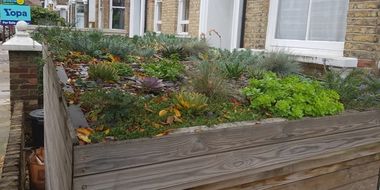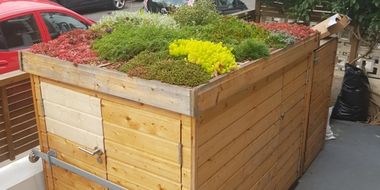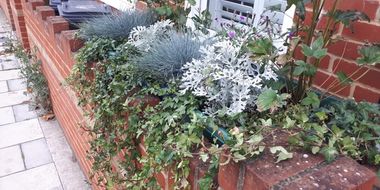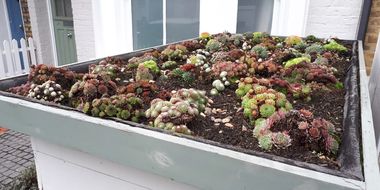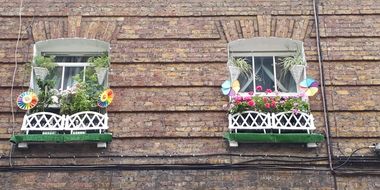
What’s the case for crossover charging?
Should householders pay for crossovers from the street to front garden parking spaces? Christine Eborall explores the domino effect and costs of free crossovers.
- Opinion
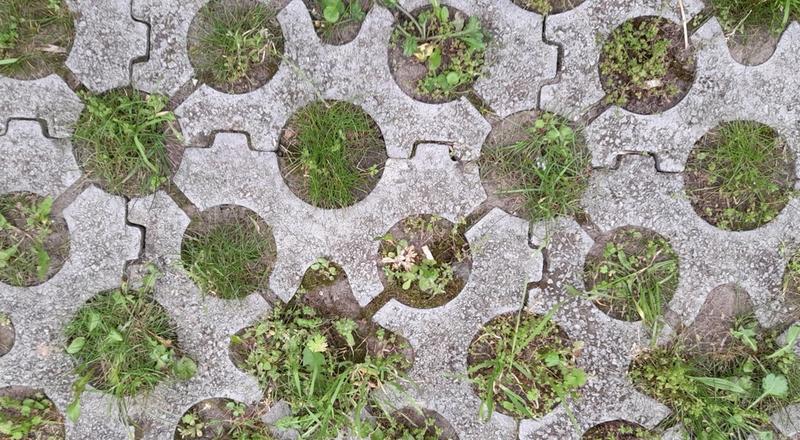
The many merits of matrix paving
In the past 30 years, huge numbers of front gardens in British towns and cities have been paved and concreted over for parking. But the surfaces being used – typically concreted bricks and pavers, ‘permeable’ paving, asphalt or gravel – have many drawbacks.
All of them are making the effects of climate change and biodiversity loss worse. They increase flood risk, make surroundings hotter, destroy the trees and plants we need, are hostile to wildlife and make neighbourhoods unattractive.
Nor are they as low-maintenance as suppliers and contractors claim. To keep them looking immaculate – as many householders seem to want – they need regular attention. If left, after just a couple of years ‘weeds’, moss and debris often make them look a mess. This reduces permeability and may prompt the use of dangerous chemicals.
There’s no end in sight to front garden parking. That horse has bolted. Indeed, home charging electric vehicles is leading to even more front gardens, and more of their available space, being paved over.
So perhaps we need a closer look at parking surfaces. Are there less damaging options? Our research suggests matrix paving is a strong candidate.
- Our Research
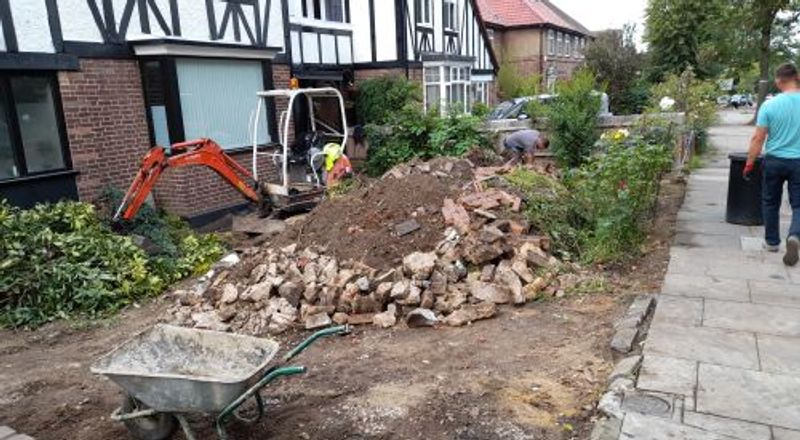
Crazy paving: who’ll step up to end front garden loss?
The harm from front gardens disappearing under hard surfacing is starting to gain attention. Important bodies concerned about risks to life, property and assets from floods and excess heat say it’s now on their agenda.
It’s positive that they’re recognising that losing front gardens is directly undermining good work to make the UK more climate change-resilient and liveable.
But only central government can change the situation. Will it do so? asks Christine Eborall.
- Resources
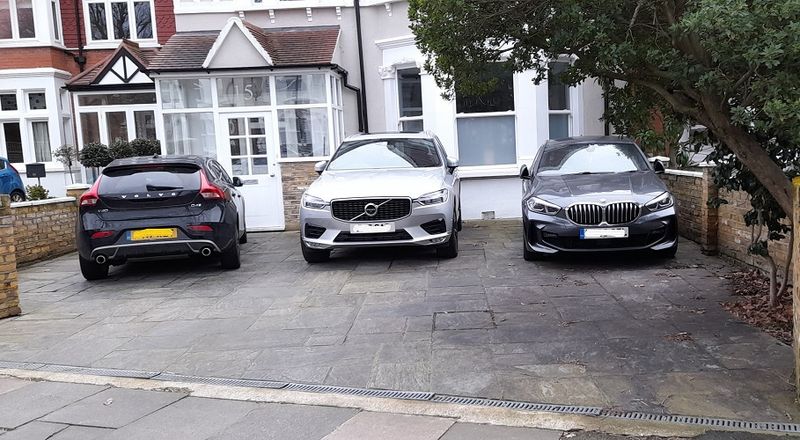
Rain runs off impermeable surfaces despite regulations
Sealed and concreted bricks and pavers, concrete and resin-bonded surfaces are a popular choice for many front gardens, especially for parking.
They are impermeable, which is part of the attraction. There are no gaps for weeds to grow so they offer a neat and stylish look and need virtually no maintenance. They provide a good parking surface for all the household’s cars – especially desirable if they all need charging overnight. And, despite being impermeable, they are completely within the current (2008) regulations as long as they incorporate a way of stopping rain running off onto the pavement.
- Our Research
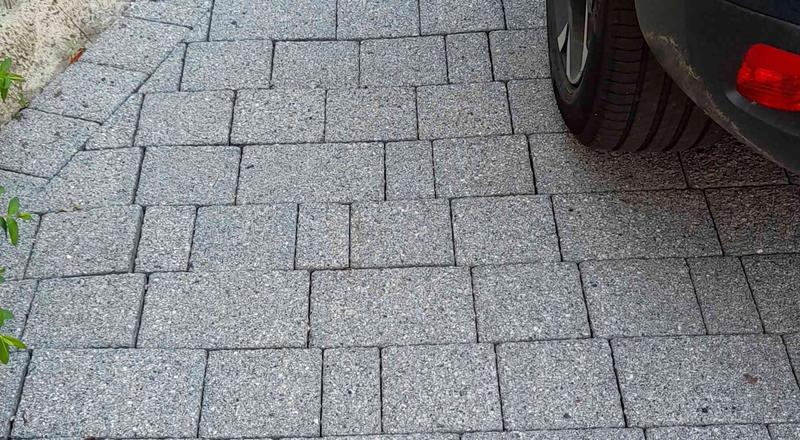
The myth of “permeable paving”
In March 2023, the head of Ofwat suggested that water companies could charge customers less if they have “permeable driveways”. What he probably meant was parking surfaces that let rain soak in, rather than running off into the road to add to pressure on drains, higher flood risk and sewage overspills.
But do they work?
- Our Research
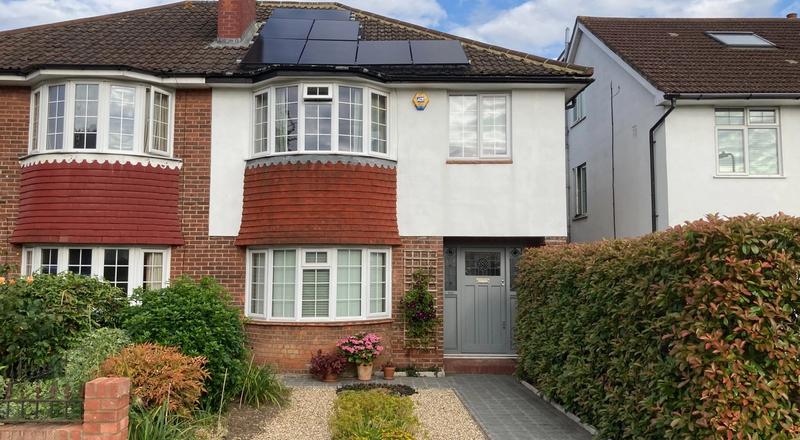
Eco parking an electric car in Acton
When Juliet and Neal got an electric car they were loath to turn their front garden into hardstanding, but needed a place to charge the vehicle.
Determined to find an eco-friendly option, the couple created a permeable driveway and a design that can be widely adopted.
- Inspiration

Front garden parking encourages massive rise in households with multiple cars
The 2021 Census shows a massive increase over the past 40 years in households with three or more cars or vans in outer London boroughs.
This is largely down to people using their entire front garden for parking.
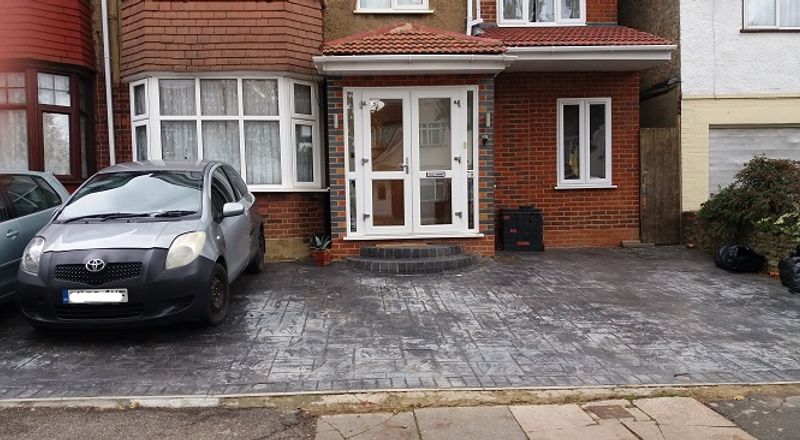
National Infrastructure Commission recognises that paved-over front gardens increase flood risk!
The largely-ignored epidemic of front gardens being lost to hard surfacing seems, at last, to have been recognised by national bodies.
First, in November 2022 the influential National Infrastructure Commission (NIC) published “Reducing the risk of surface water flooding” which specifically mentions that paved-over front gardens increase flood risk.
And then, early in 2023, the Government said it will consult on whether to making sustainable drainage systems (SuDS) mandatory for new development from 2024.
- What you can do
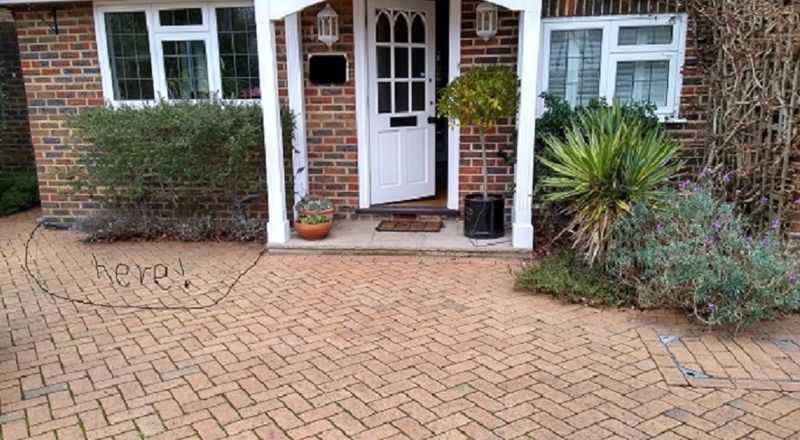
Depaving in action
Fiona has removed part of the extensive brick paving in her front garden to make it better for wildlife and the local environment.
- Inspiration

Heatwave Health Alert: don’t re-pave, de-pave!
Paved-over front gardens make houses even hotter in heatwaves. That’s because the surface absorbs heat during the day and releases it at night, and there are no plants to provide shade and cooling (via evapotranspiration).
- What you can do
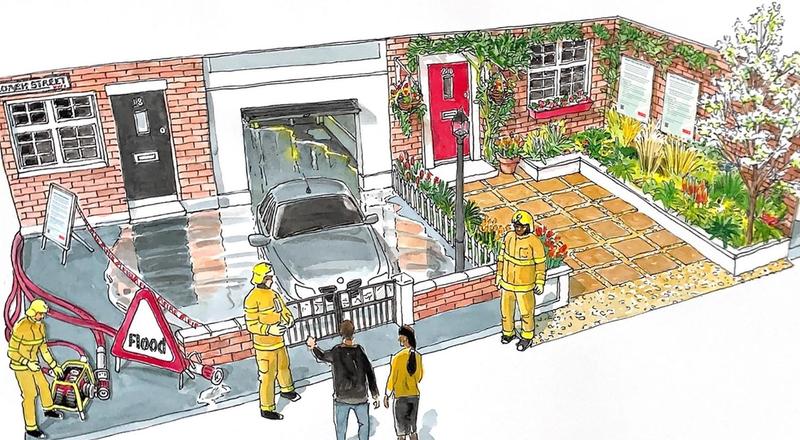
It’s not just flooding!
It’s great to see the London Fire Brigade highlighting how paved front garden contribute to flooding, at this year’s Chelsea Flower Show. But paving causes lots of other problems as well and makes the impacts of climate change worse.
- Inspiration
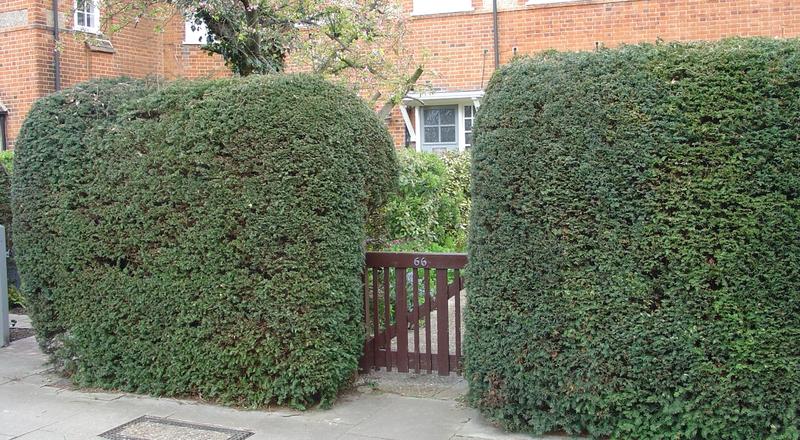
We need hedges! But what sort?
Hedges make urban life better in many ways. But many are being torn out as front gardens are lost to parking. Christine Eborall finds out why hedges should not be overlooked and points to the right type of hedge for you.
- What you can do
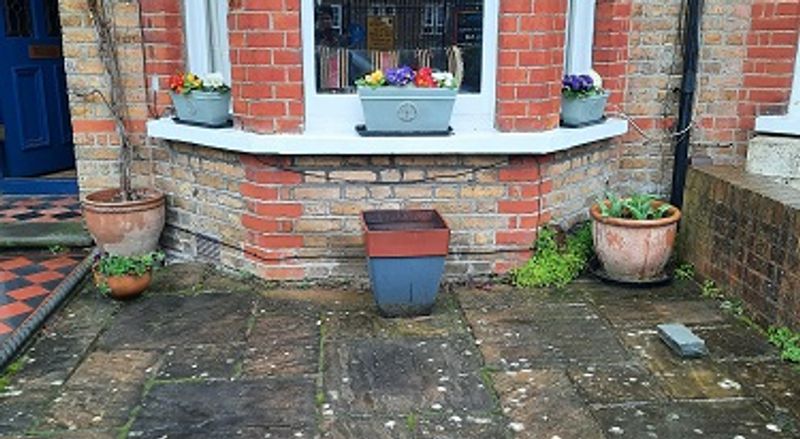
Transformation in Twickenham
Lockdown walks made Nancy realise how many of the front gardens in her Twickenham neighbourhood were dreary and depressing. So she decided to do something about hers.
- Inspiration

Bees need front gardens!
Bees, butterflies, moths, flies, wasps and beetles – the many pollinating insects – are vital for our gardens to grow.
They also more than help to produce food worldwide. But urbanisation and intensive farming are causing dramatic declines in pollinator numbers.
The good news is that our humble gardens, including front gardens, are a real help in counteracting this by being brilliant feeding stations for bees and other pollinating insects.
- What you can do
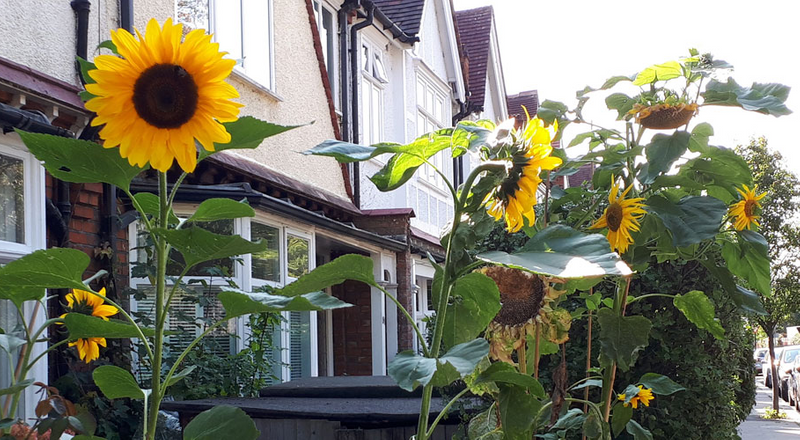
Front Gardens on the Frontline
Will good government policies for cleaner cars have unintended consequences and lead to the loss of more front gardens? Christine Eborall of the Ealing Front Gardens Project explores.
- Opinion

Britain’s Vanishing Front Gardens: Are We Letting the Most Local Of All Green Spaces Disappear?
When people talk about how green their area is, they often mention parks and green spaces but not domestic front gardens, even though these can make up more of an area’s green space than parks.
Christine Eborall and Paul de Zylva explore the consequences of Britain’s disappearing front gardens and offer some creative ways to keep them and their multi-purpose role intact.
- Inspiration

Save unloved gardens with garden-sharing
Gardening boosts our health and well-being but what if you can’t garden or don’t have one? Lend and Tend are here to help.
- What you can do
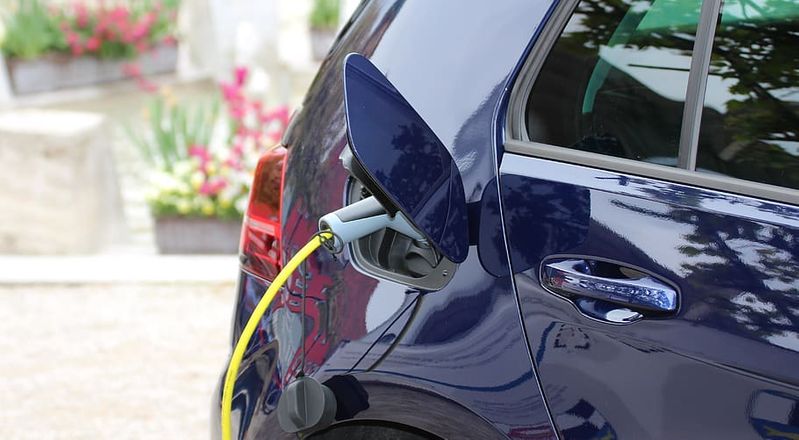
A New Threat - Electric Vehicles
We think electric vehicles will cause even more front gardens to disappear.
- Opinion



